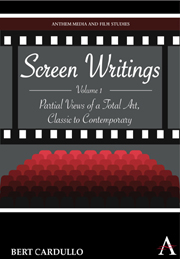Book contents
- Frontmatter
- Contents
- List of Illustrations
- Introduction: The Necessary Film
- Part I Children and the Cinema
- 1 Children of a Lesser God: The Children's Film from De Sica to Kore-eda
- 2 Death Wish, Child's Whim, Auteurist Will: Boyer and Clément's Forbidden Games Replayed
- 3 War Games: On Bahman Ghobadi's Turtles Can Fly
- Part II Literature and Adaptation
- Part III Views and Interviews
- Part IV World Enough and Time
- Bibliography of Related Criticism
- Index
- Plate section
3 - War Games: On Bahman Ghobadi's Turtles Can Fly
from Part I - Children and the Cinema
Published online by Cambridge University Press: 05 March 2012
- Frontmatter
- Contents
- List of Illustrations
- Introduction: The Necessary Film
- Part I Children and the Cinema
- 1 Children of a Lesser God: The Children's Film from De Sica to Kore-eda
- 2 Death Wish, Child's Whim, Auteurist Will: Boyer and Clément's Forbidden Games Replayed
- 3 War Games: On Bahman Ghobadi's Turtles Can Fly
- Part II Literature and Adaptation
- Part III Views and Interviews
- Part IV World Enough and Time
- Bibliography of Related Criticism
- Index
- Plate section
Summary
Remember the name Bahman Ghobadi, whose “children's film” Turtles Can Fly (2004) I have finally had the opportunity to see. As I watched this picture, I thought of two of its cinematic relatives, each of which shall frame my discussion of Turtles Can Fly. The first is Roberto Rossellini's neorealist film Germany, Year Zero (1947), in which a twelve-year-old boy, trying to feed his family amidst the destitution of occupied Berlin, poisons his sickly father (played by the only professional in the cast, Franz Kruger) to lessen the burden. Unable to live with the deed, however, he throws himself from the ruins of a tall building – but not before poignantly finding a moment to play (yes, play, not pray) before killing himself.
The second work I recalled, as I screened Turtles Can Fly, is the “new” neorealist West Beirut (1998), a film by Ziad Doueiri about two Muslim boys and a Christian girl (all played by young people who had never before acted) growing up in the war-torn Lebanon of 1975. Here they manage to tease, quarrel, idle, snack, and bicycle like their youthful counterparts everywhere, at the same time as they take risks – amidst bombed-out buildings, rubble-strewn streets, military checkpoints, and frequent sniper fire – that even the most intrepid of schoolchildren would have trouble imagining.
- Type
- Chapter
- Information
- Screen WritingsPartial Views of a Total Art, Classic to Contemporary, pp. 31 - 36Publisher: Anthem PressPrint publication year: 2010



